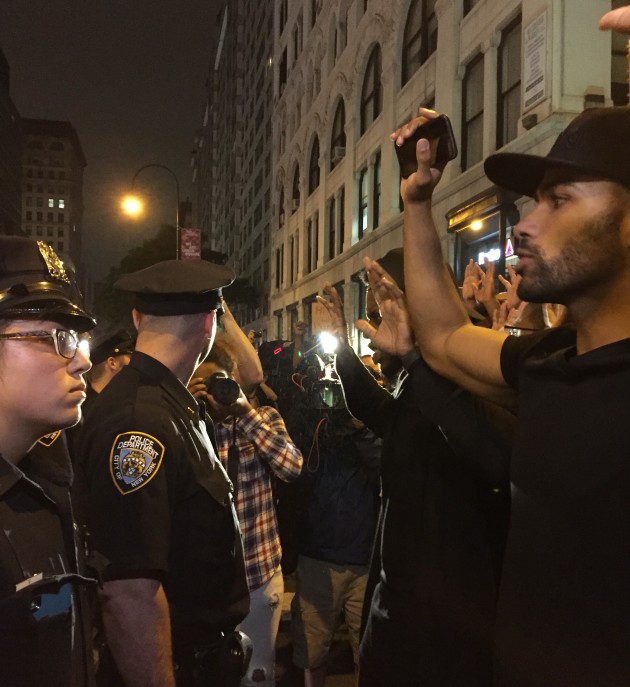I’ve been in the U.S. for the past few weeks and it was here that I was shocked to learn of the death of young Adama Traore while in police custody in Beaumont sur Oise. According to the official version, he succumbed to a heart malfunction. His family and friends deny this strenuously. His own mother insists he has never suffered with any cardiac problems and his sister states that her “brother was killed by the police”. His family has yet to see his body.
Adama Traore was a Black man.
While the eyes of the world have been riveted on the United States where in the same week, two Black men, Alton Sterling and Philandro Castile died at the hands of policemen, the death of a French Black man in similar circumstances does not seem to provoke the same reaction. In the political sphere, the voices of extremists were heard spouting their nauseating gall in condemnation of truth-seeking demonstrators.
Tous unis avec nos policiers qui font face à la haine des émeutiers-délinquants de #BeaumontSurOise.
— Marion Le Pen (@Marion_M_Le_Pen) July 20, 2016
#BeaumontSurOise Soutien aux forces de l’ordre et à la population face aux racailles !
— Florian Philippot (@f_philippot) July 20, 2016
Artists and everyday citizens are the ones who sent messages of solidarity to the family.
On perd encore un Frere Adama Traoré paix à son âme que la terre lui soit légère #Persan #BeaumontSurOise bon courage à la famille
— #SONSOFAFRICA (@Mokobe113) July 20, 2016
Toutes mes prières pour Adama Traoré, toutes mes pensées pour ses proches. Que justice soit faite en sa mémoire. Qu’il repose en paix.
— Omar Sy (@OmarSy) July 21, 2016
Most of the media coverage has come from activists on the ground.
“Où sont les médias ? Pr parler des voitures brûlées y a du monde mais pour le reste y a personne”#BeaumontSurOise pic./woTnoJlwTJ
— Sihame Assbague (@s_assbague) July 20, 2016
La gendarmerie est sortie et a gazé et matraqué tout le monde sans sommation.
#BeaumontSurOise pic./B5oW6FltKq— Sihame Assbague (@s_assbague) July 20, 2016
And when the media does mention this tragedy, the racial aspect is systematically omitted. Why keep the evidence quiet?
Adama Traore was a young Black man who lived in the inner city.
Undoubtedly, this cost him his life. In France, this description corresponds to the profile of those unfortunates who lose their lives each year during or following a police intervention; this has been denounced by Amnesty International for several years.
In our country where the racism of American police are promptly denounced for being racist, I am stunned by this incredible ability to omit the obviously racial aspect of this kind of tragedy when it occurs on our soil.
A few days after marching in New York by the sides of my #BlackLivesMatter comrades, I note with immense sadness that once again in France as in the US, racism shows itself to be the product of a system that needs urgently to be dismantled.
Justice for Adama!
Translated by Alberta Wilson

